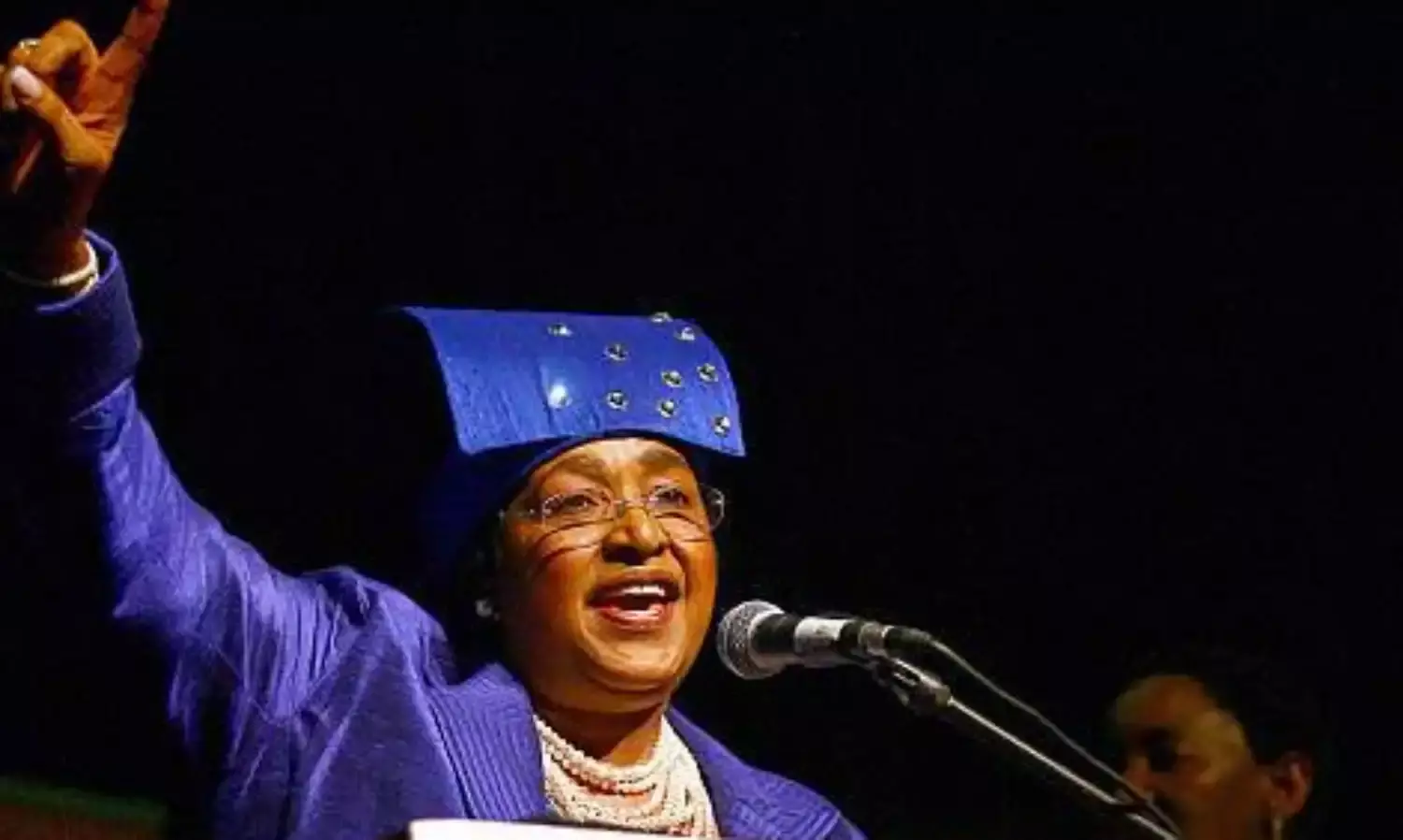The Indomitable Winnie Mandela
The Indomitable Winnie Mandela

It was a very large hall, the townhall in Durban, South Africa and as large as the hall was, it was overflowing with women particularly African women with a few sprinklings of other nationalities and colours. This was the plenary session of the World Rural Women’s Congress in 2007. The idea of a Rural Women’s Congress had been mooted at several U.N. meetings by women from rural areas but it was South Africa that took the initiative to host it.
Winnie Mandela was expected – as the guest speaker. I was one of three speakers on the stage who had just spoken and she was to join us. Winnie arrived, dressed beautifully in a long gown, with a matching bandana around her head. The gathering went crazy.
She stood in front of the mike, raised her arm, with a tight fist and shouted ‘Amandla’ freedom! The audience responded with one voice ‘Yetu’. She kept this going till all rules in the hall were broken…, and the South African women began to dance the toi toi, in which she joined them from the stage
It is my sense that for the masses in South Africa ,especially the women, she never ceased being a hero. She represented the rising resentment against what was considered Mandela’s pushover, succumbing to deals which neither pushed back the Whites nor got sufficient reparations for the Blacks. She was their real freedom fighter so the audience was as hysterical as they become nowadays with pop-stars, an uncontrollable relationship with the speaker on the stage.
Winnie was a legend .She represented radical edge and her frailties for which she was punished in many ways, never really impacted the passion the emotion that the Black people, especially women held for Winnie and she lived up to it with her politicalness. She galvanised the Congress, speaking in Khosa, the local language, not talking about Rural Women and development, but about livelihood.
After her stirring speech she came to where we were sitting, and then both of us, she and I ,went up to a private room where speakers were invited to rest. She said I want to come to India, “please have your government invite me”. She remembered her visit to India actually to Bangalore, to one of those conferences that were being held even during the Apartheid movement, as part of the U.N”. She remembered meeting Margaret Alva and repeatedly said please have me invited to India.
I did mention it then to India’s representative in Durban, the High Commissioner and others but since she had become a touch-me-not, somebody that the government of South Africa did not approve of, the Indian officials would not take any interest.
Many of us from India would remember her presence in almost all the Women’s meetings that were held ,during Apartheid whether in Australia or Mexico, -where she was the flag-bearer against apartheid, and her events were as packed as we see now see for pop-singers. She had glamour and charisma as well as stirring language in how she represented a passion called freedom. Rest in Peace , dear Winnie



